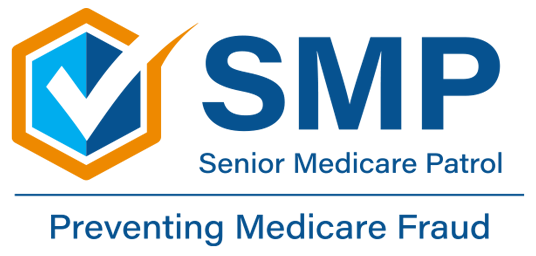
SMPs play a unique role in the fight against Medicare fraud, errors, and abuse. SMP volunteers and staff serve as “eyes and ears” in their communities, educating beneficiaries to be the first line of defense.
Medicare is complicated. What may seem like an error to the beneficiary may simply be the result of a misunderstanding about benefits.
It may also be abuse, which involves billing Medicare for services that are not covered or are not correctly coded. The provider has not knowingly and intentionally misrepresented the facts to obtain payment.
Medicare fraud assumes criminal intent. The Centers for Medicare and Medicaid Services (CMS) defines fraud as “the intentional deception or misrepresentation that the individual knows to be false or does not believe to be true,” and that is made “knowing that the deception could result in some unauthorized benefit to himself or herself or some other person.
Some common examples of suspected Medicare fraud or abuse are:
- Billing for services or supplies that were not provided
- Providing unsolicited supplies to beneficiaries
- Misrepresenting a diagnosis, a beneficiary’s identity, the service provided, or other facts to justify payment
- Prescribing or providing excessive or unnecessary tests and services
- Violating the participating provider agreement with Medicare by refusing to bill Medicare for covered services or items and billing the beneficiary instead
- Offering or receiving a kickback (bribe) in exchange for a beneficiary’s Medicare number
- Requesting Medicare numbers at an educational presentation or in an unsolicited phone call
- Routinely waiving co-insurance or deductibles
- Waivers are only allowed on a case-by-case basis where there is financial hardship, not as an incentive to attract business
